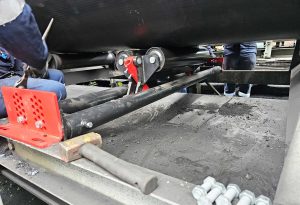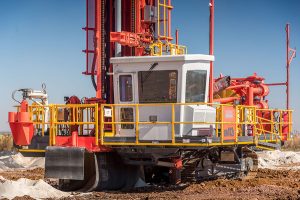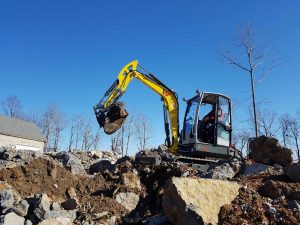Epiroc Southern Africa, which includes South Africa, Botswana, Mozambique, Namibia and Zimbabwe, has joined the list of Epiroc entities around the world in collaborating with SafeStart International.
SafeStart is a global organisation that leads the way in human error reduction techniques training, injury reduction up to the average of 50%, and 24/7 safety behaviour ownership by providing these safety concept interventions for companies worldwide.
The programmes involve practical techniques that can be applied to keep workers alert to hazards and risks all day, every day. The objective is to create a safe environment at work, at home, on the road and in the community.
“When it comes to ‘safety always’ behaviour, Epiroc’s values are clear – we want to protect what we value most, our people,” says Johnny de Mesquita, Epiroc Regional SHEQ manager for Southern Africa. “The health and safety of all our employees, our customers and our business partners remain paramount. Our strict compliance to SHEQ legislation, ISO Standards, Industry Code of Practices, and customer requirements bears testament to our relentless commitment to ensuring that we provide a healthy, safe and protected working environment for every employee, contractor or visitor to our premises and buildings.”
“SafeStart addresses not only our own safety but also, importantly, the safety of everyone around us,” explains de Mesquita. “We are extremely excited about this collaboration, especially because this is a behavioural based programme that addresses safety from a totally different perspective. It considers people’s state of mind living in modern society, both in the workplace or on the road as well as in the home and community environment. Alongside the daily stresses that we have to deal with, we are constantly bombarded with information from so many different sources which is distracting, causing us to lose focus. This can have serious consequences, especially while driving, crossing the road or operating heavy machinery. SafeStart presents our employees with the necessary tools to help us all stay safe wherever we are – at work, at home, on the road, in the gym, at the mall, among other places.”
The SafeStart Programme was introduced to Epiroc employees at the Jet Park head office on 22 November 2021. “Unfortunately, we are not in a position to ‘bubble-wrap’ everyone in order to keep them safe,” says de Mesquita. “So, we did the next best thing and used bubbles as our launch theme to engage with and communicate the SafeStart message to all our employees in a fun and memorable way.”
The programme comprises five units which will be rolled out to all Epiroc offices, branches and mine sites in South Africa and the relevant region countries. It is imperative that the first unit is presented by a SafeStart consultant. This responsibility falls on SafeStart International master trainer, Rose Mosiane, who has already trained Epiroc South Africa’s executives and management and presented a Train-the-Trainer course for internal Epiroc resources.
Unit # 1, which kicked off on 29 November 2021, is expected to be completed around May/June 2022 for the entire Southern African region and will be followed by training of the remaining four units. Each two-hour training session is attended by typically fifteen employees. It takes approximately three to four weeks to complete and apply the concepts learned for each of the five units to give employees ample time to get used to the principles and to practice them in the working and/or leisure environment before moving on to the next unit. Once Mosiane has completed the first unit towards the end of Q2 2022, the remaining units will be presented by internal Epiroc trainers and will continue throughout the year until the programme is completed.
“The challenge is to make sure that everyone is trained and equipped with all the information they need and that no one is left behind to help us all prevent daily critical errors and/or decisions compromised by rushing, frustration, fatigue and complacency. Our main objective is to report near-misses and unsafe behaviour continuously towards reduction of incidents and property damages in the workplace, and to ultimately decrease LTI (lost time injury) to zero,” concludes de Mesquita.







